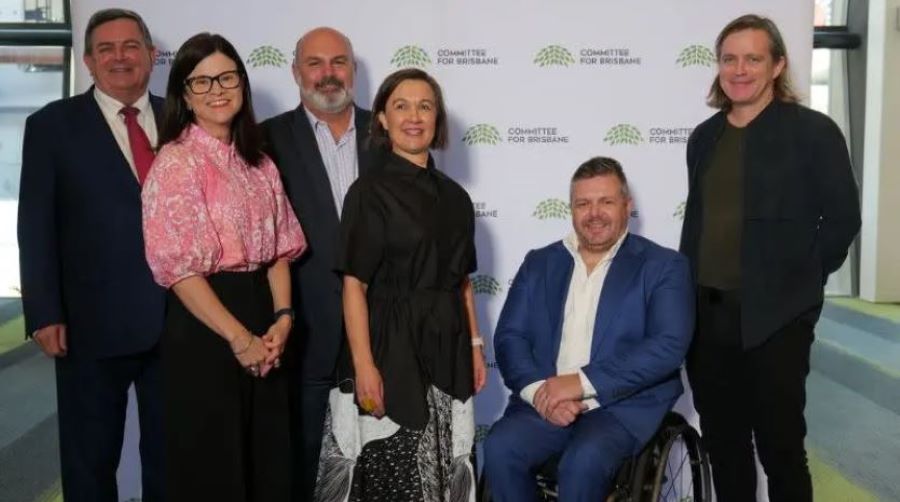Accessibility in all its forms needs to be urgently considered in Brisbane ahead of the Olympic and Paralympic Games in 2023 and beyond, according to a panel of experts at the Committee for Brisbane event last week.
The calls come at a difficult time for the construction industry, with price and labour pressures, in addition to onerous changes to the National Construction Code due to be adopted this year.
But the focus on accessibility should not be scrapped because it adds an extra hurdle for developers and construction companies, according to the panel.
“We talk about universal design and access and we’ve been talking about it for a very long time, but we need to stop talking about it and do it,” said Paralympian and chair of the Board for Sporting Wheelies and Disabled Association Michael Dobbie-Bridges.
“That’s not just around disability employment, it’s people with various disabilities. Getting around in a wheelchair is just one small part of it.
“If you look around the Brisbane skyline you can count probably 30 cranes. I want to know how accessible those new buildings are. Are [those developers] leveraging tech that already exists [for example]?”
Setting up alert beacons, contributing to Access Map apps, and bringing in organisations and individuals to test accessibility before opening are just small ways in which developers can help futureproof their own developments and contribute to the Brisbane 2032 legacy.
“There are some curb ramps here in Brisbane that I need to hit at full speed to get up… that’s not good enough. How hard is it to make a ramp that you can get up?
“There are some parts of this city I can’t go.”
It was announced in February that the Queensland Government will fund a $2.7 billion redevelopment of the Brisbane Cricket Ground, alongside a Federal pledge of $2.5 billion for the Brisbane Arena.
Sixteen new or upgraded venues will receive close to $1.87 billion in co-funding on a 50/50 basis between the two governments, under plans that align with Paralympics Australia’s strategic and legacy goals for the Games.
Clearly there is a commercial imperative to ensure acccessibility despite the costs, whether it is additional access routes of conforming to new design code changes.
But these commitments mean nothing without action, according to the panel.
“I think the biggest mistake we can possibly and often make, is that we will build it and they will come, and we often forget about ‘they’,” Health and Wellbeing Queensland chief executive Dr Robyn Littlewood said.
Fellow panellist chairman and chief executive at ASM Global Harvey Lister said that the events management and venue company was constantly adapting.
“It’s not just people in wheelchairs, we have people who get vertigo, people who may have someone with them who has Down syndrome, people with comfort animals [and those that] need quiet rooms, and we accommodate that.”

Universal design is obviously key to this accessibility, and will aid in the future proofing of the legacy of the Games. It involves creating an environment that can be easily accessed, comprehended, and utilised people of all ages, sizes, abilities, and disabilities.
“We’ve seen a major change even in the last 10 years to make sure we get that right.
“If you think about access generally, I’ve had a view for some time that walkability even in the CBD and to South Bank and Gabba precinct certainly needs a bit of focus to get it right.”
Brisbane has an opportunity to get it right and ensure the legacy of the Games continues in the built environment.
“There are a lot of cities in the world where you can’t fix this stuff, they’ve been there for thousands of years, think about Paris, its walkways and pathways, built without consideration [for accessibility].
“Brisbane is a younger city, there is so much work being done, the opportunity is there.
“I’m encouraged by the focus on that, and we as the Committee for Brisbane should advocate for the government to come with us to make those changes while we can.”
Article source: www.theurbandeveloper.com
